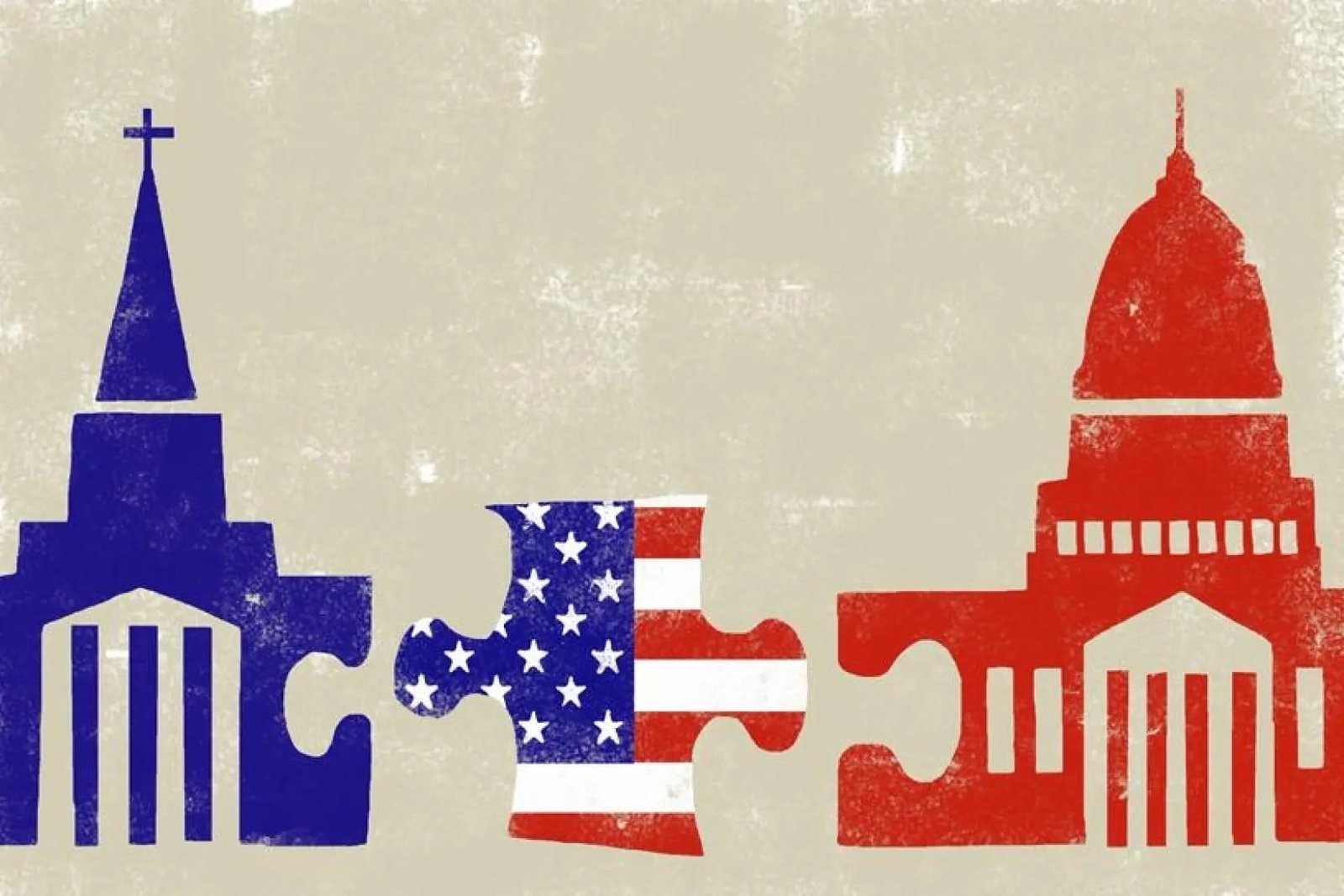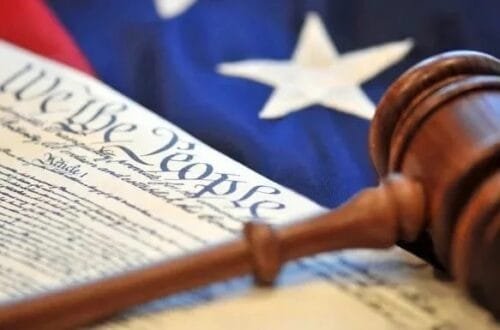Faith and Governance Intersect: Sean Feucht and Scott Turner

Introduction to the Figures Involved
In recent discussions surrounding the intersection of faith and governance, two prominent figures have emerged: Sean Feucht and Scott Turner. Sean Feucht, a self-identified Christian extremist, is known for his active involvement in the Christian nationalist movement. Feucht gained recognition as a musician and worship leader, using his platforms to advocate for a particular interpretation of Christianity that emphasizes conservative values. His history includes organizing large-scale worship events across the United States, often protesting public health measures during the COVID-19 pandemic. These activities have attracted both fervent supporters and significant criticism, placing Feucht at the center of various cultural debates.
Scott Turner, on the other hand, serves as the Secretary of the U.S. Department of Housing and Urban Development (HUD), a position that places him in a crucial role concerning national policy and governance. Turner has a background in public service and entrepreneurship, having previously served as a state representative in Texas. His responsibilities at HUD involve addressing housing issues and implementing policies aimed at improving living conditions across the nation. His involvement in governance is often perceived through the lens of policy decisions that reflect his commitment to serving the American populace.
The partnership between Feucht and Turner has garnered attention, particularly in the wake of wildfire damage in Los Angeles. Recent collaborative efforts between them highlight a unique blend of faith and governance. While Turner’s governmental role necessitates secular management of housing and disaster recovery, Feucht’s faith-driven approach adds a layer of complexity to their interactions. Their activities together continue to raise important questions about the influence of religious beliefs in governmental practices and policymaking, setting the stage for further exploration of this controversial partnership.
Feucht’s Vision for Government and Faith
Sean Feucht, an outspoken advocate of merging faith with governance, articulates a vision where the church substantially influences political affairs. He contends that the responsibilities of church leaders extend beyond spiritual guidance, advocating for their active engagement in political discussions and decision-making processes. This perspective reflects his belief that faith should not only inform personal morals but also shape public policy. Feucht’s rhetoric suggests that the Trump administration harbored intentions of fostering closer ties with local ministries and pastors, thereby reinforcing his viewpoint that church and state can work hand-in-hand for the common good.
Feucht has been vocal about his criticism of liberal policies, which he argues undermine traditional societal values. His assertions suggest that such policies often lack the moral foundation necessary for meaningful governance. By invoking the significance of faith in public life, he aims to rally support among constituents who share similar sentiments regarding the perceived decline of moral standards in contemporary governance. Moreover, Feucht posits that the church’s involvement in government can lead to a revival of principles rooted in biblical teachings, influencing legislation that he believes aligns more closely with a Christian worldview.
His controversial statements often stir debate surrounding the separation of church and state, raising pertinent questions about the extent to which faith should dictate governance. Critics argue that such a conflation risks marginalizing diverse beliefs within a pluralistic society. Nevertheless, Feucht’s vision of a robust partnership between faith communities and governmental entities challenges conventional notions of secularism in the political arena. This pursuit of a collaborative approach aims to place the moral compass of faith at the forefront of legislative actions and societal reform, underscoring the significant role that faith can play in shaping governance.
The Implications of Christian Nationalism
Christian nationalism, as exemplified by the partnership of Sean Feucht and Scott Turner, represents a significant ideological shift that seeks to merge faith and governance. This movement advocates for a legislative and cultural framework that prioritizes Christian values, often at the expense of the established principle of the separation of church and state. The implications of such a stance are multifaceted, raising critical concerns about the future of pluralism and democracy in society.
At the core of this agenda is the aspiration to create a government that reflects a particular interpretation of Christianity. Proponents argue that a Christian-led government can restore moral order and societal values. However, this perspective ignores the diverse tapestry of beliefs that exist within a modern, multicultural society. By promoting policies aligned with Christian nationalist ideals, there is a substantial risk of marginalizing individuals and communities that do not adhere to these religious beliefs, effectively undermining the foundational American principle of religious freedom.
The policy implications of Christian nationalism can manifest in various forms, from educational reforms that favor religious instruction over secular curricula, to legislative measures that can infringe upon the rights of non-Christian citizens. This potential shift in governance not only jeopardizes the rights of minority groups but also threatens the neutrality required for a fair and equitable democratic system. Observers are concerned that if such ideologies gain traction, they could pave the way for a system where religious doctrines dictate legal and social norms.
The discourse surrounding the implications of Christian nationalism is complex and layered, requiring a careful examination of its effects on secular governance. Advocates may see this as a return to foundational principles, whereas critics view it as a perilous encroachment upon democracy and a direct challenge to the pluralistic society that values diversity and inclusivity. Understanding these dynamics is crucial to grasping the broader consequences of this controversial partnership.
Public Response and Accountability
The intersection of faith and governance has sparked significant debate, particularly concerning the involvement of individuals such as Sean Feucht in governmental discussions. Public reactions to Feucht’s participation have been mixed, reflecting a range of perspectives on the appropriate role of religious figures in shaping public policy. Proponents argue that faith can inspire positive social change, while critics emphasize the necessity of maintaining a separation between church and state. This tension underscores the core of the accountability issues arising from Feucht’s partnerships with governmental actors.
Various community leaders and organizations have voiced their concerns regarding Feucht’s influence on public policy, suggesting that collaborations with government might blur the lines between personal beliefs and governance. These critiques often emphasize the potential for religious ideologies to shape legislative agendas, thereby raising apprehensions about the secular nature of governance. Many assert that a framework must be established to evaluate the engagement of spiritual leaders in political discussions, ensuring that accountability mechanisms are put in place to mitigate undue influence from any singular perspective.
Furthermore, many call for transparency in these partnerships to safeguard constitutional boundaries, advocating for open discourse about how religious participation in governance is managed. The focus on scrutiny of figures like Feucht is essential not only for upholding the integrity of public policy but also for cultivating an inclusive dialogue that recognizes the diverse beliefs within society. As the debate continues, it is crucial for citizens to engage critically with the role of faith leaders in governmental contexts. This dialogue will contribute to establishing a balanced approach that prioritizes accountability and respects the complexities inherent in the relationship between faith and governance.




